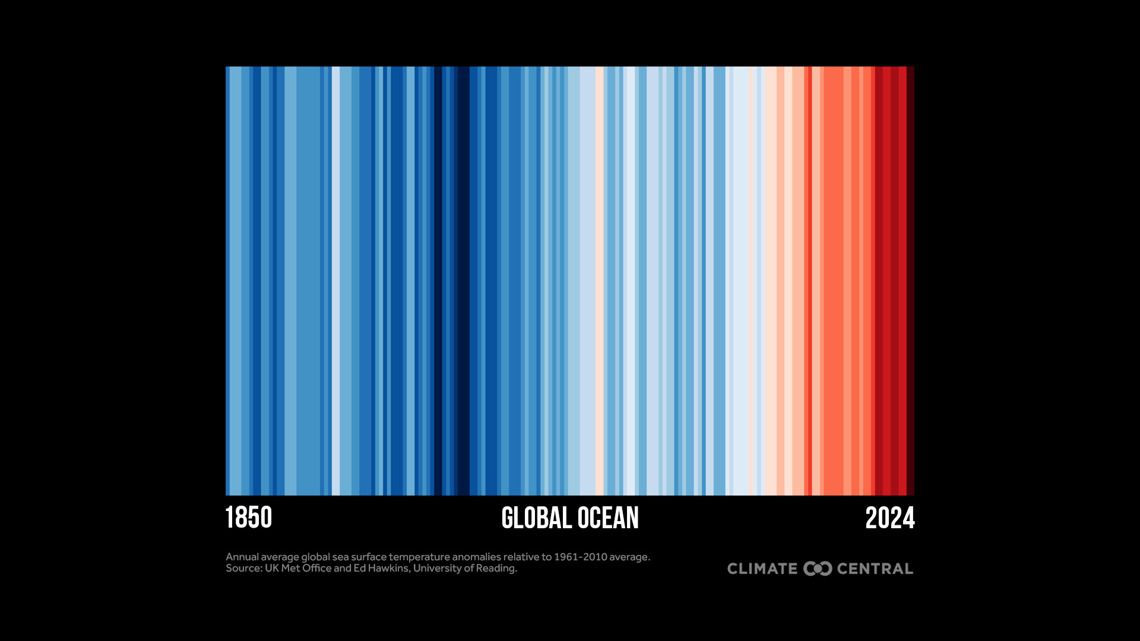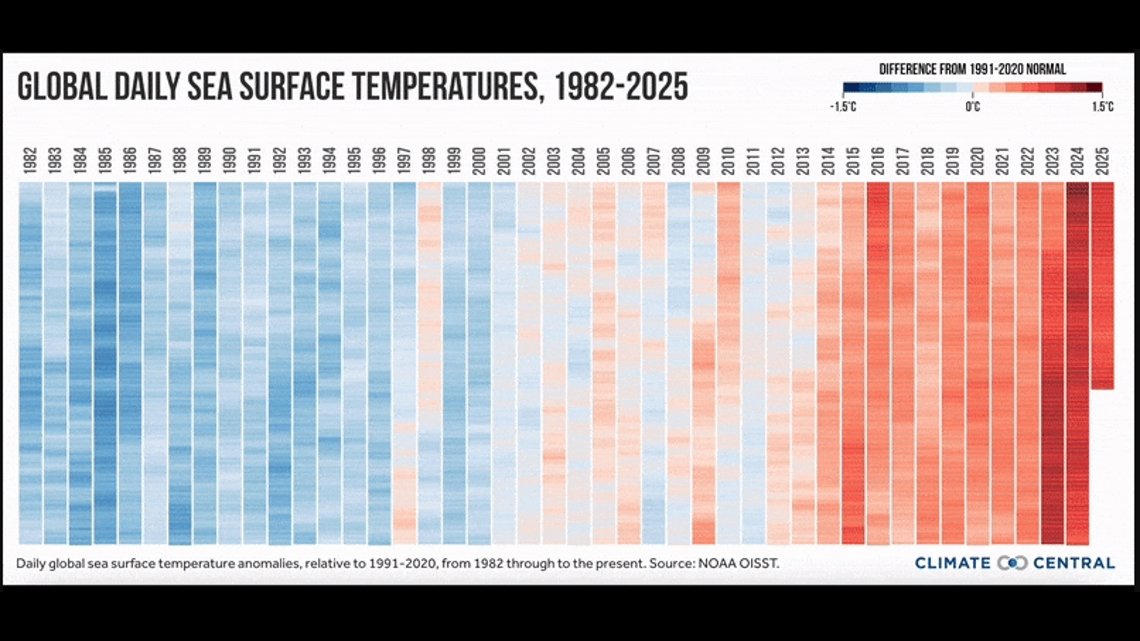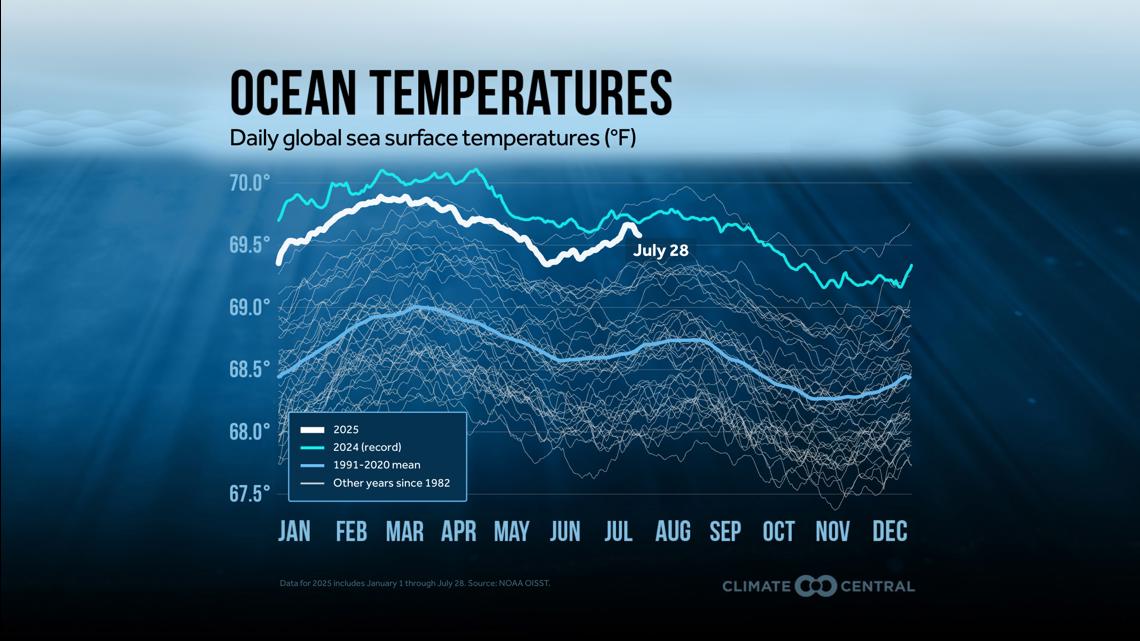Oceans are heating up at unprecedented rates, posing threats to hurricanes and marine life.
COLUMBIA, S.C. — Oceans across the globe are heating up at an unprecedented rate, threatening everything from hurricane activity to the health of marine ecosystems. The consequences are reaching U.S. shores faster than ever.
After back-to-back record-breaking years in 2023 and 2024, global sea surface temperatures have remained at near-record highs throughout 2025. Climate Central explains how researchers say this dramatic warming would have been virtually impossible without human-caused climate change.
Covering roughly 70% of the Earth’s surface, oceans regulate climate, influence weather patterns, and provide for billions. They are also absorbing the brunt of global warming. According to Climate Central, 90% of the excess heat trapped by greenhouse gases has ended up in the ocean with most of it being near the surface.


That warming is evident in the ocean “warming stipes” graphic shared by Climate Central, where a visible shift toward deep red illustrates the rapid and recent rise in sea surface temperatures since 1850.
The warming of our oceans has far-reaching implications. For coastal communities, it means stronger hurricanes, higher sea levels, and increasing flooding risks. According to Climate Central, about 2.5 million Americans in 1.4 million homes could be at risk of severe coastal flooding by 2050, even if current pledges to reduce carbon emissions are fulfilled.


In the U.S. alone, roughly 30% of the population lives in coastal counties. These regions support thriving economies centered on tourism, recreation, fishing, and national defense. Growth of these areas is threatened as warmer waters are fueling marine heat waves, causing coral bleaching from Florida to the Caribbean, and worsening “dead zone” with low oxygen that can suffocate marine life. Acidification, caused by oceans absorbing about 25% of human generated CO2, is making it harder for shellfish and other marine organisms to survive.
Understanding the influence of climate change on ocean warming is critical for preparing communities, protecting ecosystems, and building a more resilient future.

